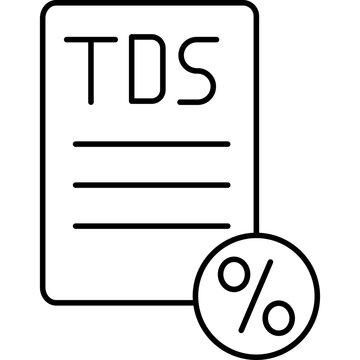
What Is TDS Rate for Different Type of Payments?
The TDS rate varies according to various sections. Refer below table:
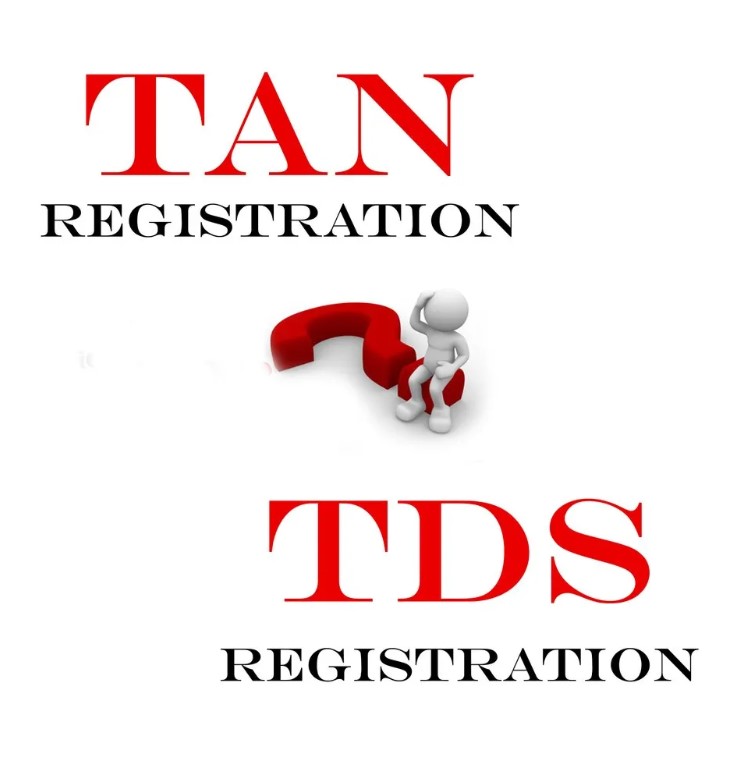
TAN/TDS > TAN Registration
Introduction
TRACES provides many features at its website to a registered deductor. The features includes: view challan status, download Conso File, Justification Report and Form 16 / 16A, view TDS / TCS credit for a PAN as well as verify PAN of Tax Payers linked to the deductor / collector. In order to take advantage of above features, it is mandatory to a deductor to register their TAN at www.tdscpc.gov.in.
Procedure for registering with www.tdscpc.gov.in
Step – I:-Visit www.tdscpc.gov.in and click on Register as Tax Deductor or Go to https://www.tdscpc.gov.in/app/dedregs1.xhtml to register;
Step – II:-Fill out the requisite details and your Login Credentials and click on Create Account
Step – III:-On clicking of Create Account a confirmation screen will appear in order to validate the inputs correctness, in case amendment is required to the data displayed in the confirmation screen, edit option may be chosen
Step – IV:-On confirming the data, the account will be created an activation link and codes will be sent to the applicant email id and mobile number.
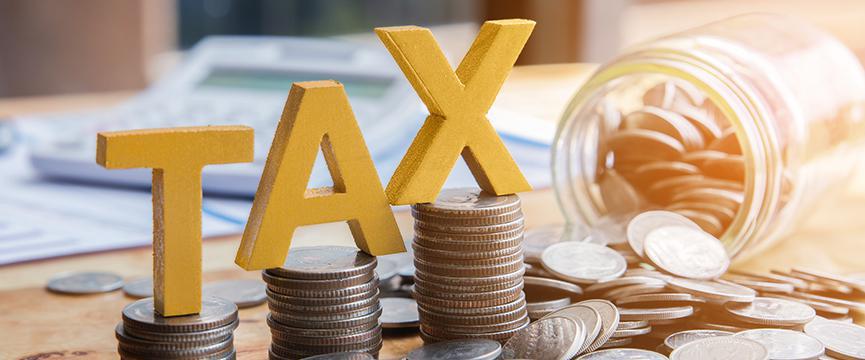
Budget may not be right time to restructure capital gains tax: Revenue secy
- Nov 30, 2022
The new alternative tax regime should be incentivised to encourage more taxpayers to adopt it, says Revenue Secretary Tarun Bajaj in an interview with Shrimi Choudhary. Bajaj, who superannuates today, suggests this could be done by raising the lower tax slab up to Rs 7-7.5 lakh, from the current Rs 2.5 lakh. He also stresses that restructuring the capital gains tax regime requires detailed consultation and the run-up to the Budget may not be the right time to do this.

I-T dept sends notices to firms to enquire about their foreign assets
- Nov 29, 2022The Income Tax (I-T) Department's Foreign Asset Investigation Unit (FAIU) has reportedly sent notices to local companies, including some listed entities enquiring about the hidden assets overseas. The bid to hunt for black money by FAIU was earlier limited only to individuals but has now expanded to companies, a report by the Economic Times (ET) said. The intelligence unit has sent notices to at least eight Mumbai firms and asked for information on their directors. Earlier, FAIU's enquiries were limited to residents' hidden assets, including their bank accounts and shareholding in foreign firms and trusts.
"But now, the FAIU is enquiring into payments by Indian companies to overseas persons and entities. Probably, they may have found cases where there were reasons to believe that the foreign recipients of the money were just intermediaries," a senior tax practitioner told ET.
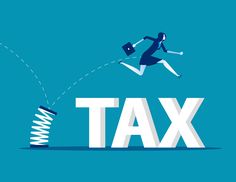
Need more direct and indirect tax reforms: Tarun Bajaj
- Nov 28, 2022
With regard to direct taxes, there is a need to "fix the capital gains on all fronts. Second is the personal income tax and the third is to rewrite the code itself to simplify it," Bajaj told ET in an interview. "If you do that, litigation will reduce," he said, laying down the agenda for reform. He said the goods and services tax (GST) needs to be rationalised and there is a case for making the exemption-less personal income tax regime better than the old one. In the case of GST, the number of slabs needs to be reduced and another look taken at exemptions. "We are reaching a stage in our economy where we need to give complete stability to the tax structures on both sides," he said. Bajaj said increased compliance is providing a boost to revenue and the scheme to allow updated returns has been successful. "We have got about 4.5 lakh updated returns and some corporates have also filed updated returns," Bajaj said.
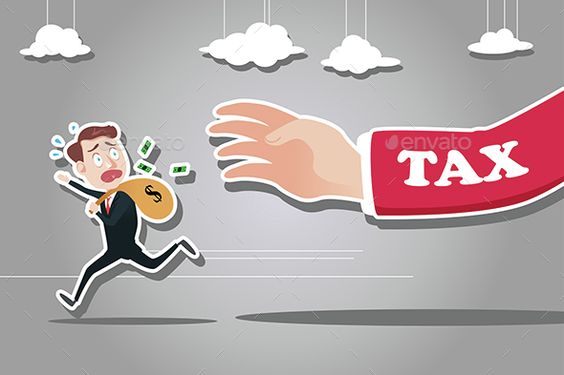
Rationalisation in long-term capital gains tax structure on the anvil
- Nov 25, 2022
The finance ministry is looking at rationalising long-term capital gains tax structure by bringing parity between similar asset classes and revising the base year for computing indexation benefit to make it more relevant, an official said. Currently, shares held for more than one year attract a 10 per cent tax on long-term capital gains. Gains arising from sale of immovable property and unlisted shares held for more than 2 years and debt instruments and jewellery held for over 3 years attract 20 per cent long term capital gains tax.
The revenue department is now looking at rationalising the tax rates as well as holding period for calculating long-term capital gains and an announcement is likely in the 2023-24 Budget to be presented in Parliament on February 1.
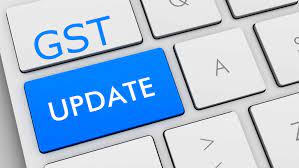
GST Annual Return: CBIC amends GSTR-9 to Allow IRC Claims and Amendment of Invoices till 30th Nov
30 Nov 2022
The Central Board of
Indirect Taxes and Customs (CBIC) has issued a notification to allow Input Tax
Credit (ITC) claims and amendment of invoices till 30th November 2022. From last week, the GST
portal has started allowing the amendment related to FY 2021-22 in October 2022
return period. This in line with the recent amendment in the GST Law wherein
amendment can be done up to 30th Nov. of the next FY.
A notification issued on Tuesday stated that “In the Central Goods and Services Tax Rules, 2017 (hereinafter referred to as the said rules), in FORM GSTR-9, under the heading Instructions, in paragraph 7, – (A) for the figures, letters and words “between April, 2022 to September, 2022”, the figures, letters and words “of April, 2022 to October, 2022 filed upto 30th November, 2022” shall be substituted; (B) in the Table, in second column, – (I) against serial numbers 10 & 11, for the figures and words “April, 2022 to September, 2022”, the figures, letters and words “April, 2022 to October, 2022 filed upto 30th November, 2022” shall be substituted; (II) against serial number 12, for the figures and words “April 2022 to September 2022”, the figures, letters and words “April, 2022 to October, 2022 upto 30th November, 2022” shall be substituted; (III) against serial number 13, for the figures and words “April 2022 to September 2022”, the figures, letters and words “April, 2022 to October, 2022 upto 30th November, 2022” shall be substituted.”
The taxpayer can amend the details of taxable outward supplies made to the registered person that is already reported in table 4A, 4B, 6B, 6C – B2B Invoices. The taxpayer shall provide the financial year and invoice number and click on Amend Record to search for the invoice. As extended by the Government, from time to time, 30th November is the deadline for making GSTR-1 amendments and claiming pending input tax credit (ITC) for FY 2021-22. However, the actual due date is dependent on November’s GSTR-1/GSTR-3B filing deadlines (i.e. pertaining to October’s return period). If a taxpayer misses the relevant deadlines, the GSTR-1/3B cannot be revised. Pending ITC for FY 2021-22, if any, will be forfeited.
Read More →
Income Tax department issues revised instruction on action against officers for high-pitched assessments
Jun 17, 2022
The income tax department on Thursday said it has issued revised instruction, which provides for initiation of suitable administrative action against the officer concerned, in cases of high-pitched assessments. In 2015, the Central Board of Direct Taxes (CBDT) had provided for the constitution of ‘local committees to deal with taxpayer grievances from high-pitched scrutiny assessment’ in each principal commissionerate region. Considering the implementation of faceless assessment regime, the CBDT has now issued a revised instruction regarding constitution and functioning of these committees.
Read More →Search
Categories
Recent News
- income Tax
- Implementation of Mandatory Mentioning of HSN Codes in GSTR-1
- Advisory on Sequential Filing of GSTR-1
- Finance Minister Proposed, Common ITR form for all Taxpayers
- Finance Ministry Extends ITR Filing Deadline for Companies
- CBDT Extends Deadline for Filing TDS for Non-Salary Transactions
- Change Your Income Tax Regimes While Filing Revised ITR
- Finance Ministry say, "Taxpayers check AIS quarterly & report discrepancies"